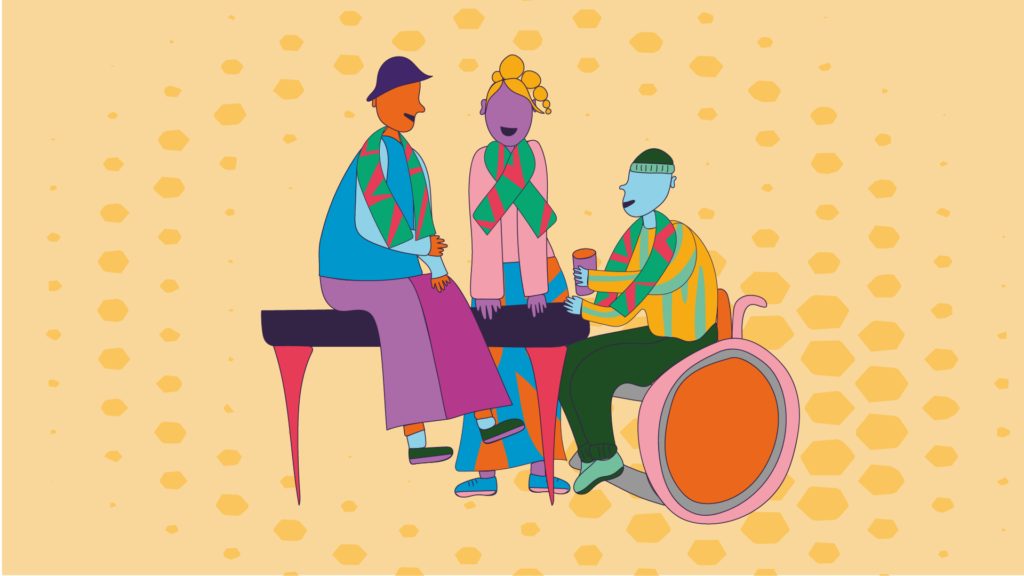Belonging to a Group
As social animals we have an innate need to belong, which drives an essential part of human behaviour and motivates us to build meaningful relationships.

Evolutionarily speaking, being part of a group increased survival chances, and the same applies today, with strong social bonds boosting our survival odds by up to 50%. Groups provide support and acceptance, as well as help us to understand ourselves in relation to the wider world; we identify with groups and then follow their norms, attitudes and behaviours (see understanding myself), thus taking on their identity.
On a societal level they instil important social norms and acceptable standards of behaviour. Groups might look or act differently across cultures, but the principle of members sharing mutual concern and/or love for one another is universal.
Groups also serve a function for categorising and understanding others. The categories or labels we impose, either implicitly or explicitly, enables us to adapt our behaviour across various situations accordingly. Generally speaking, we perceive our groups positively against other groups. Sometimes we even sometimes cast negative judgements to others to ensure our group is perceived as superior, boosting our self-esteem and confidence in our group identity.
The absence of belonging to a group has a wealth of negative consequences. Lack of group affiliation makes it difficult to relate to the social environment; people that are isolated or lonely experience poor mental and physical health as well as higher rates of early death.
Being excluded can also drive people to engage in socially deviant behaviours or engage in corrupt groups in order to be accepted by others.
Belonging becomes especially prioritised during challenging life events where we look to others for extra support; it helps our emotional health during difficult life transitions and provides us a sense of purpose as we contribute towards the welfare of others (see having impact).
Want to learn more?
Read all the details, including how this value presents itself through who we are, what we have, do and need, in our Human Values Research Paper.
